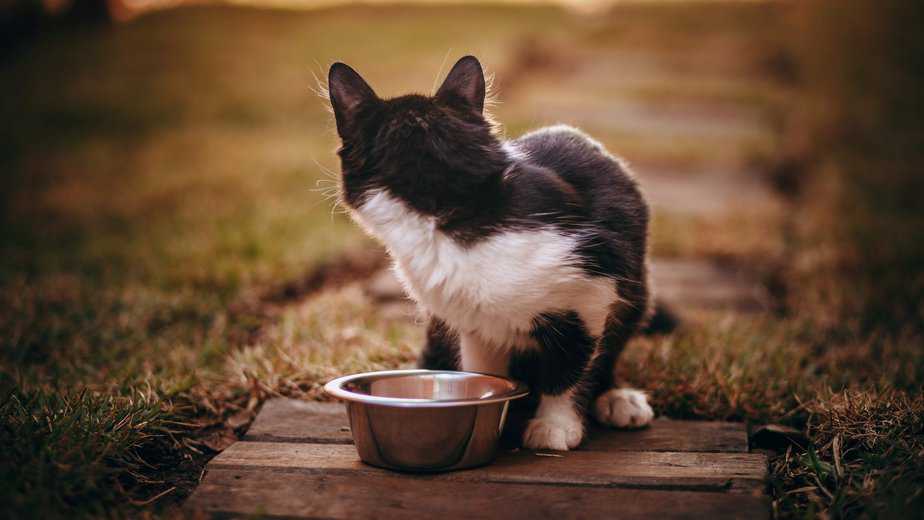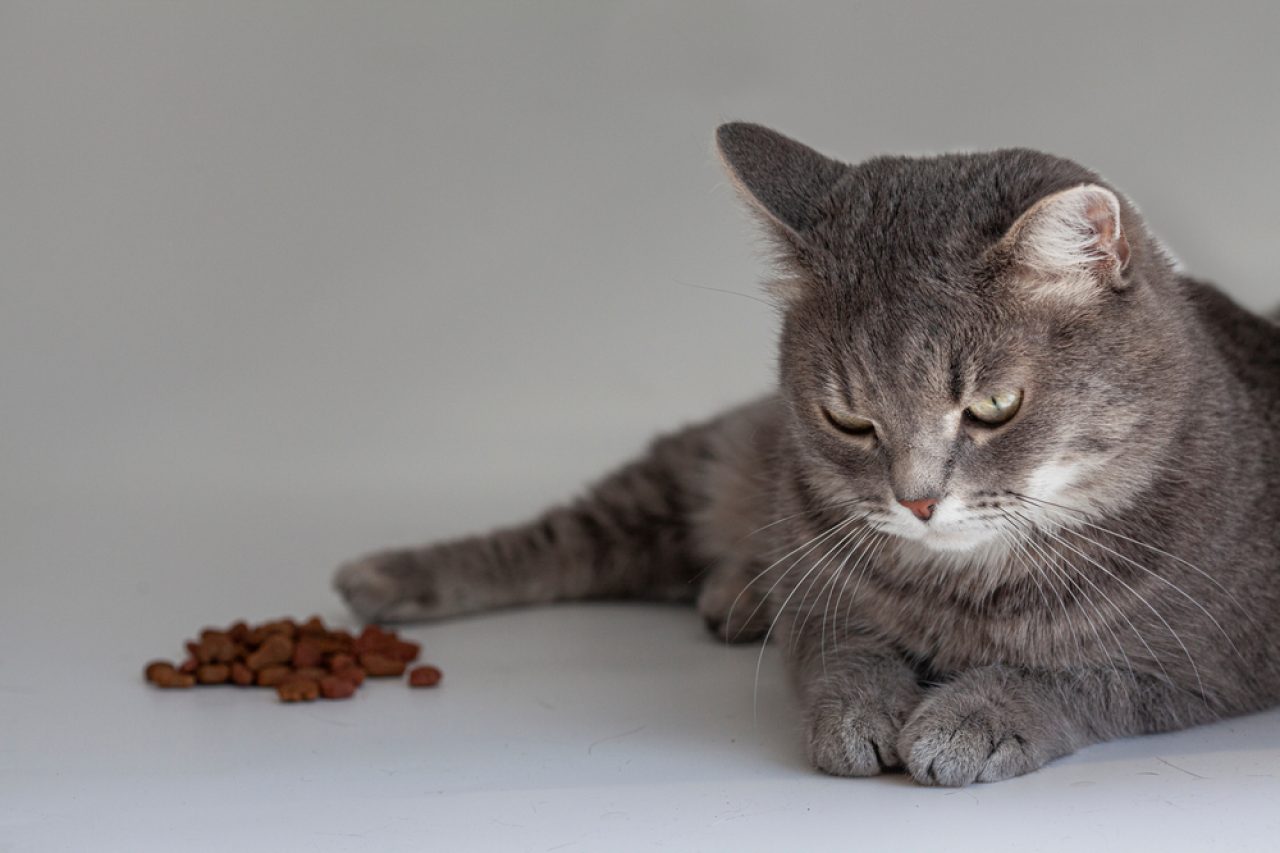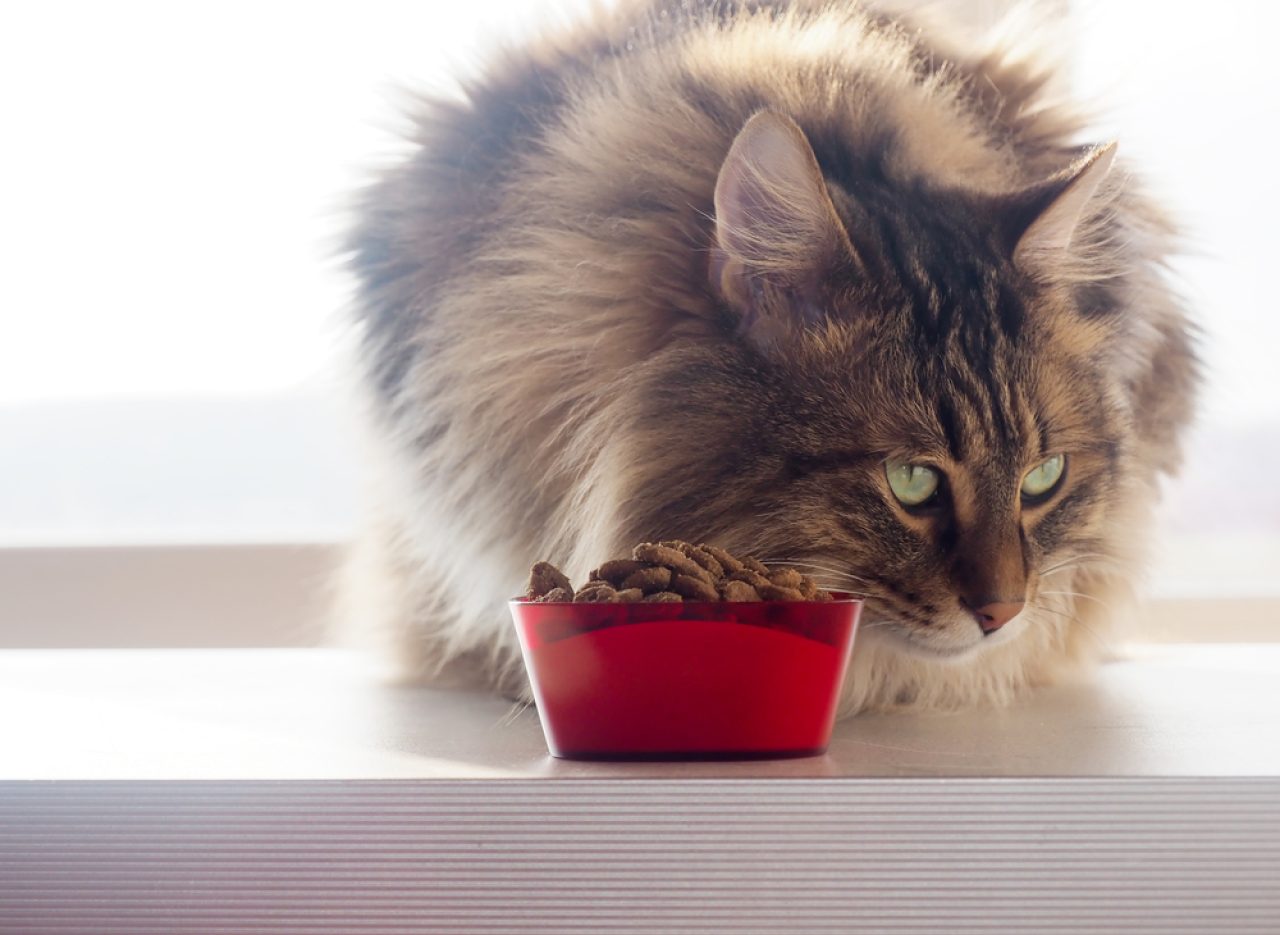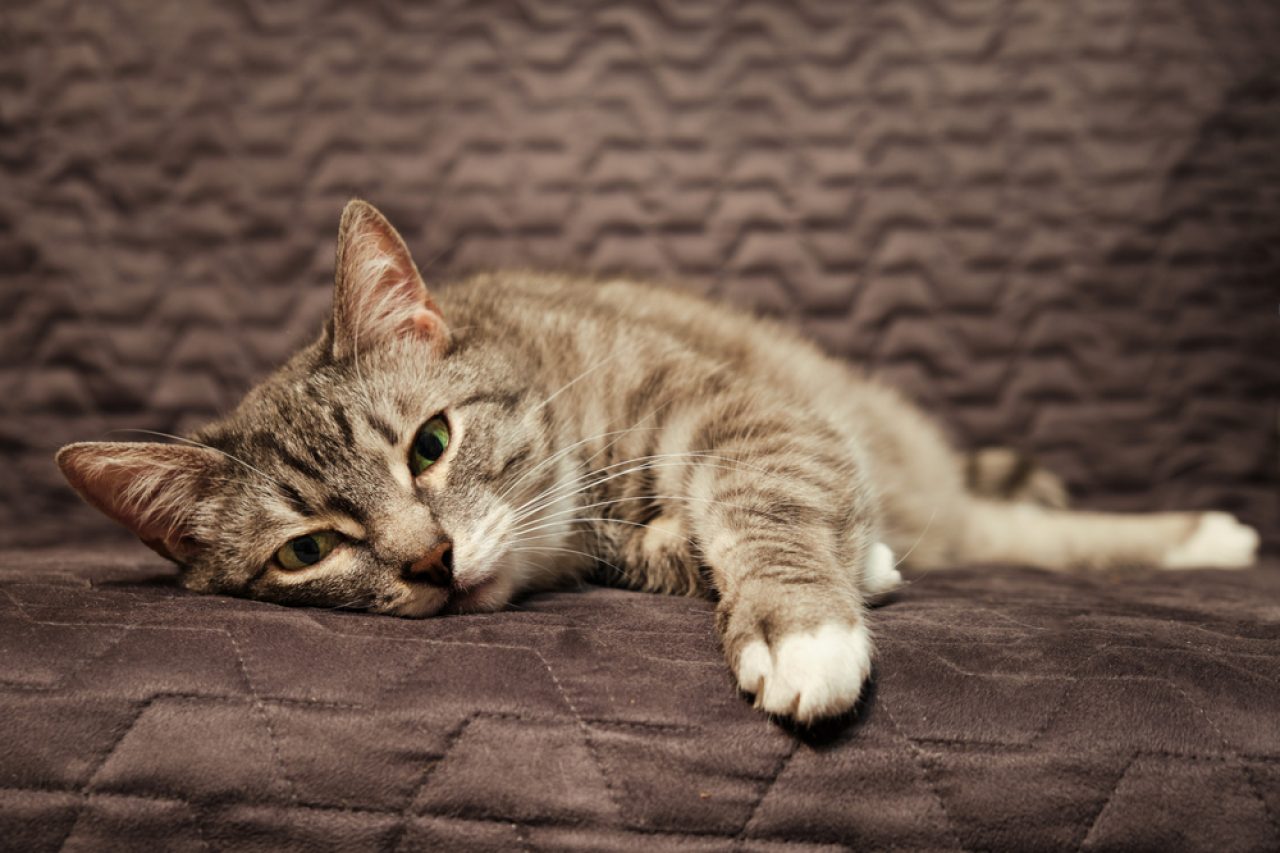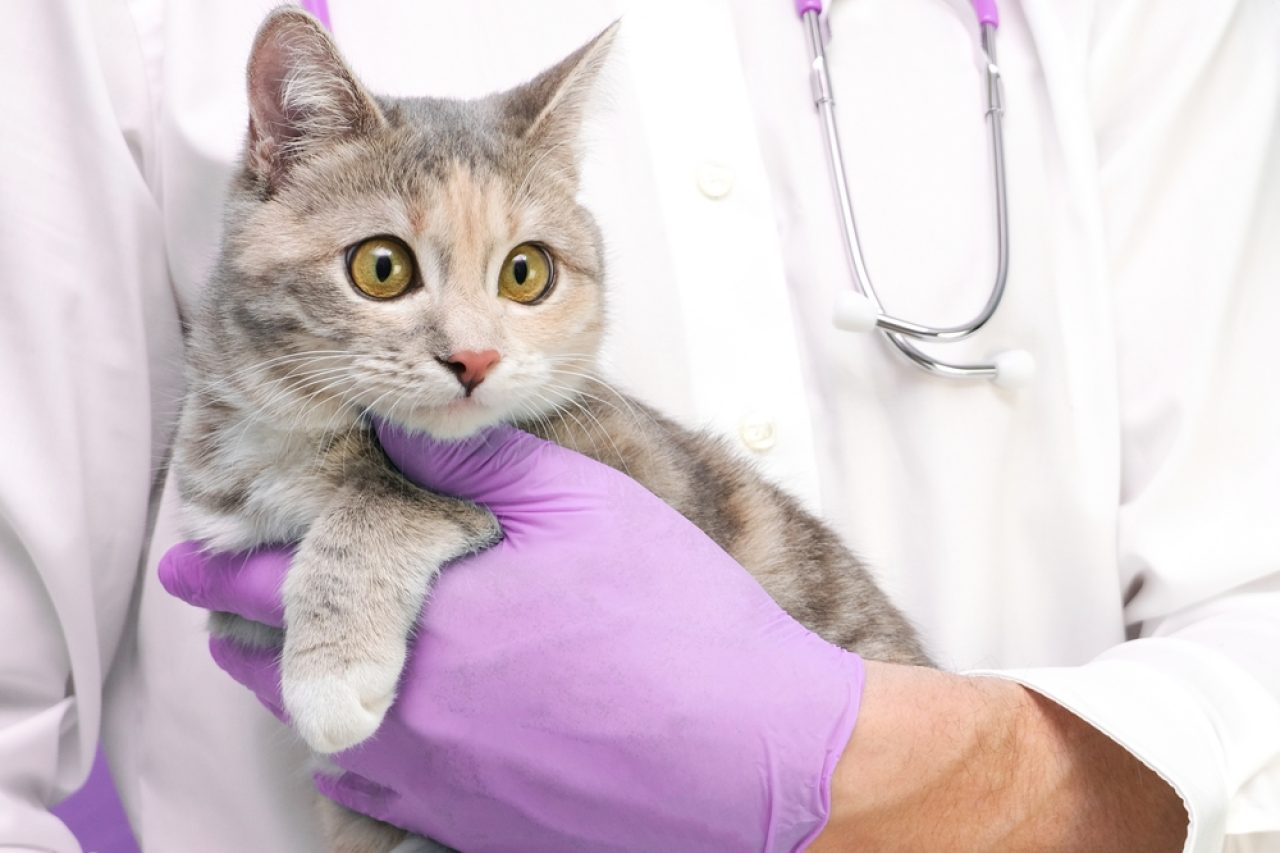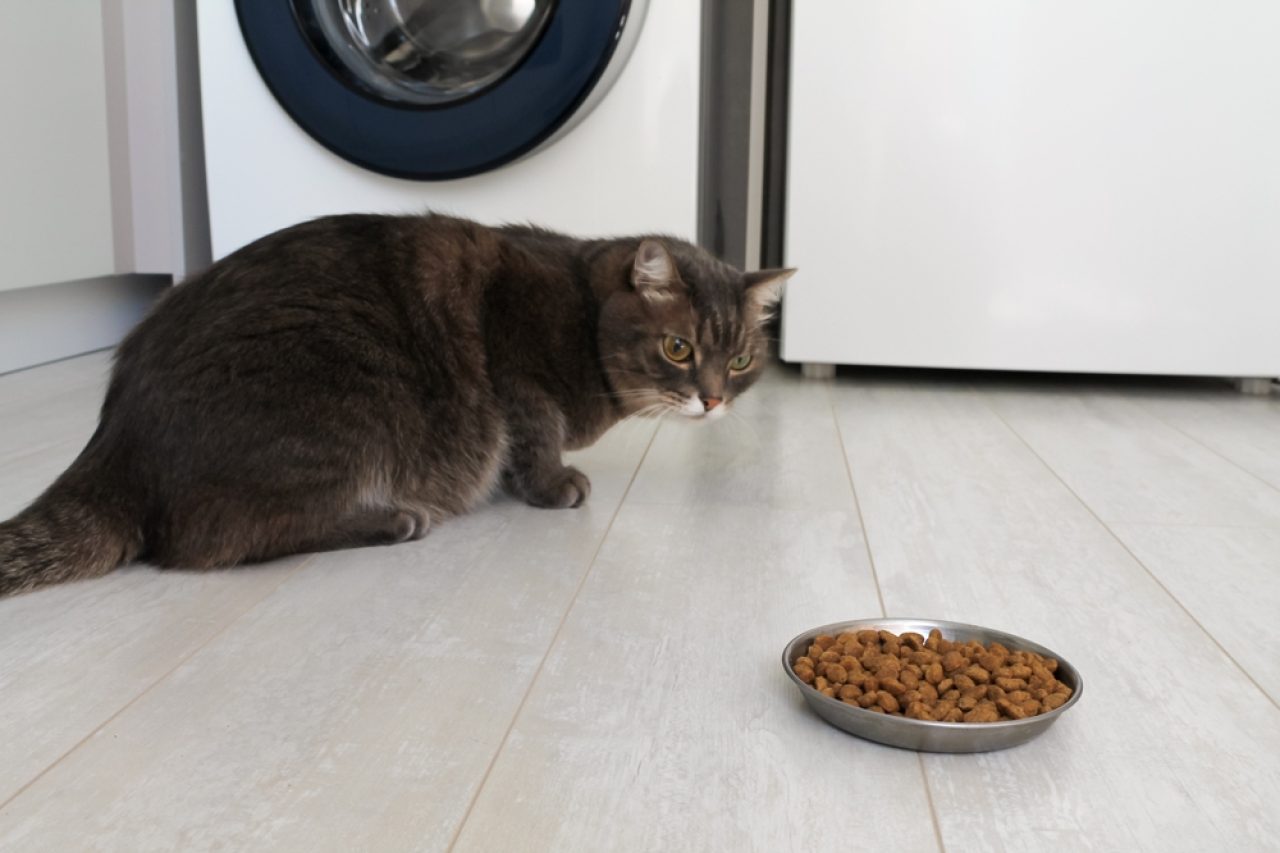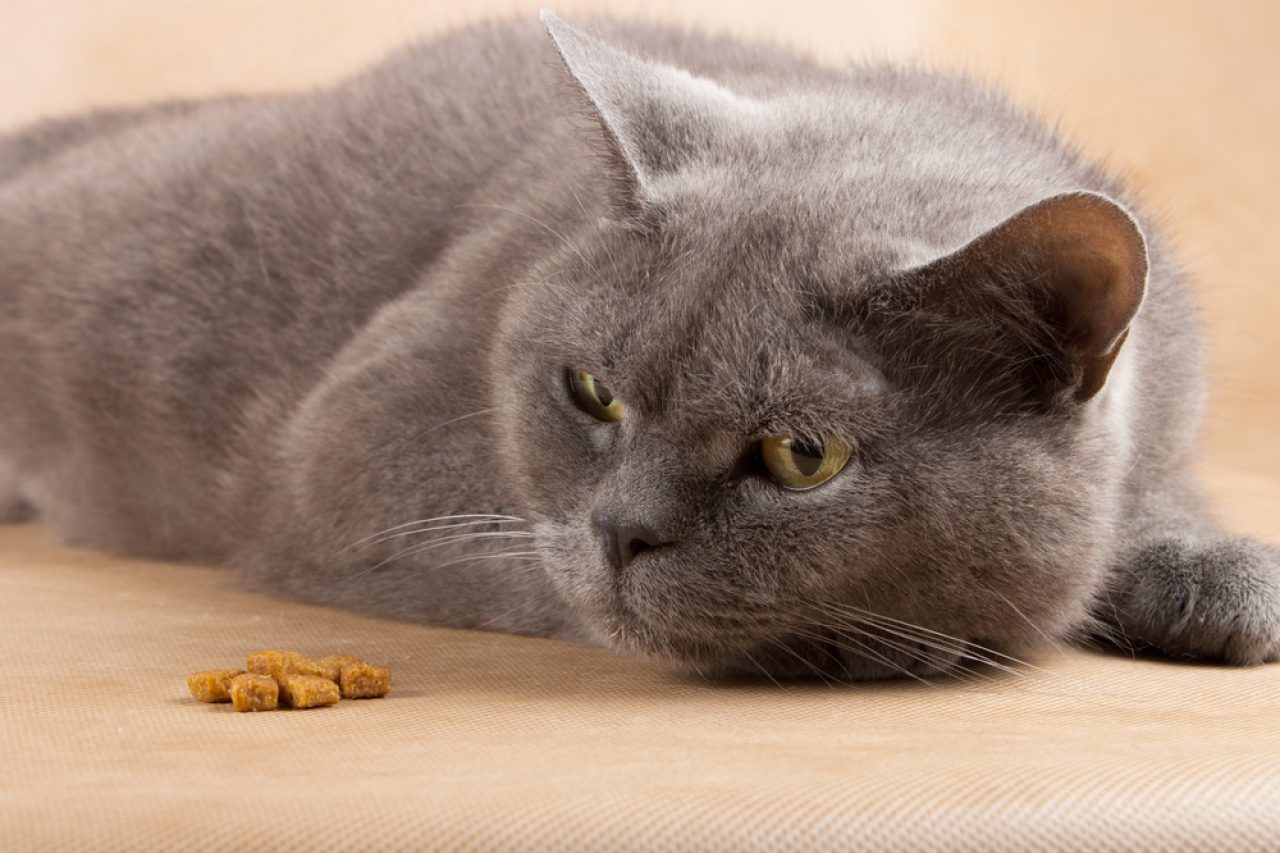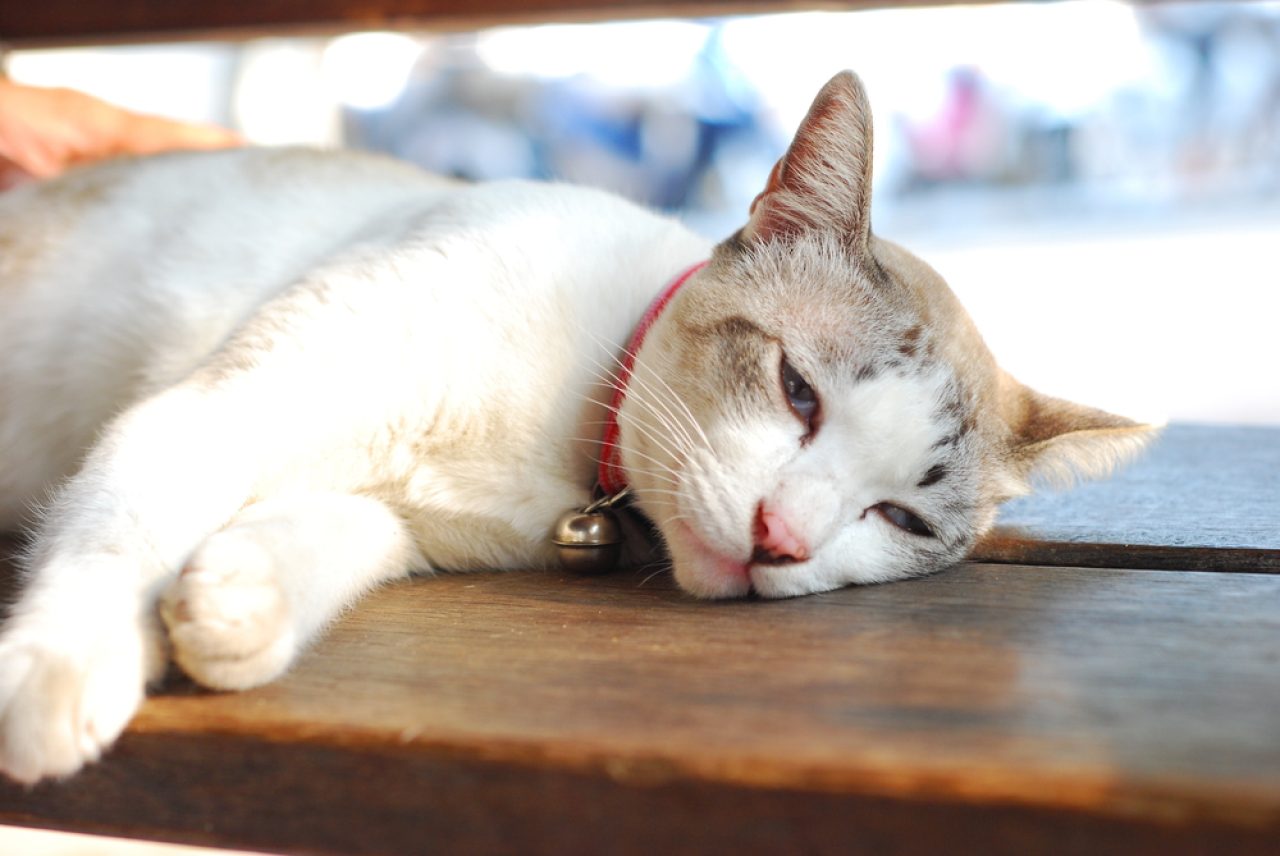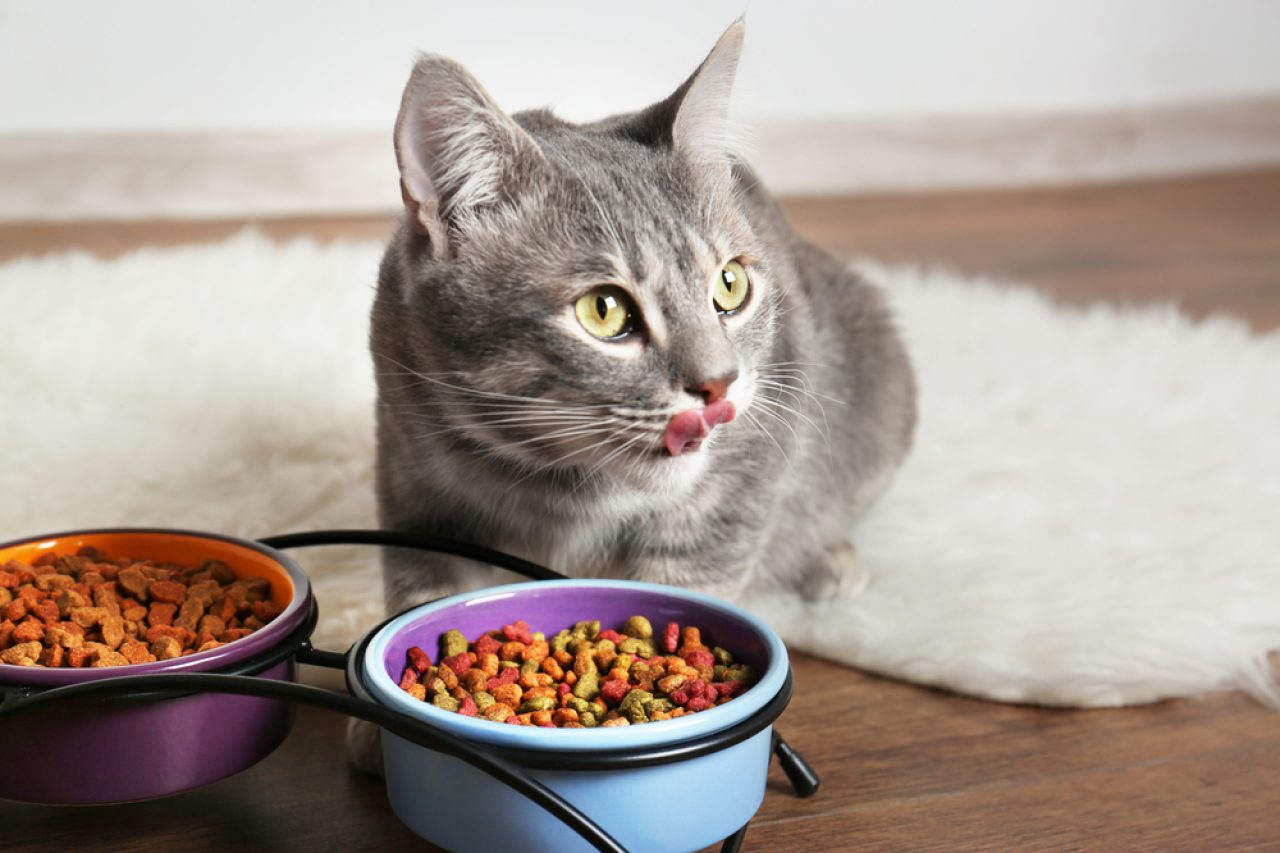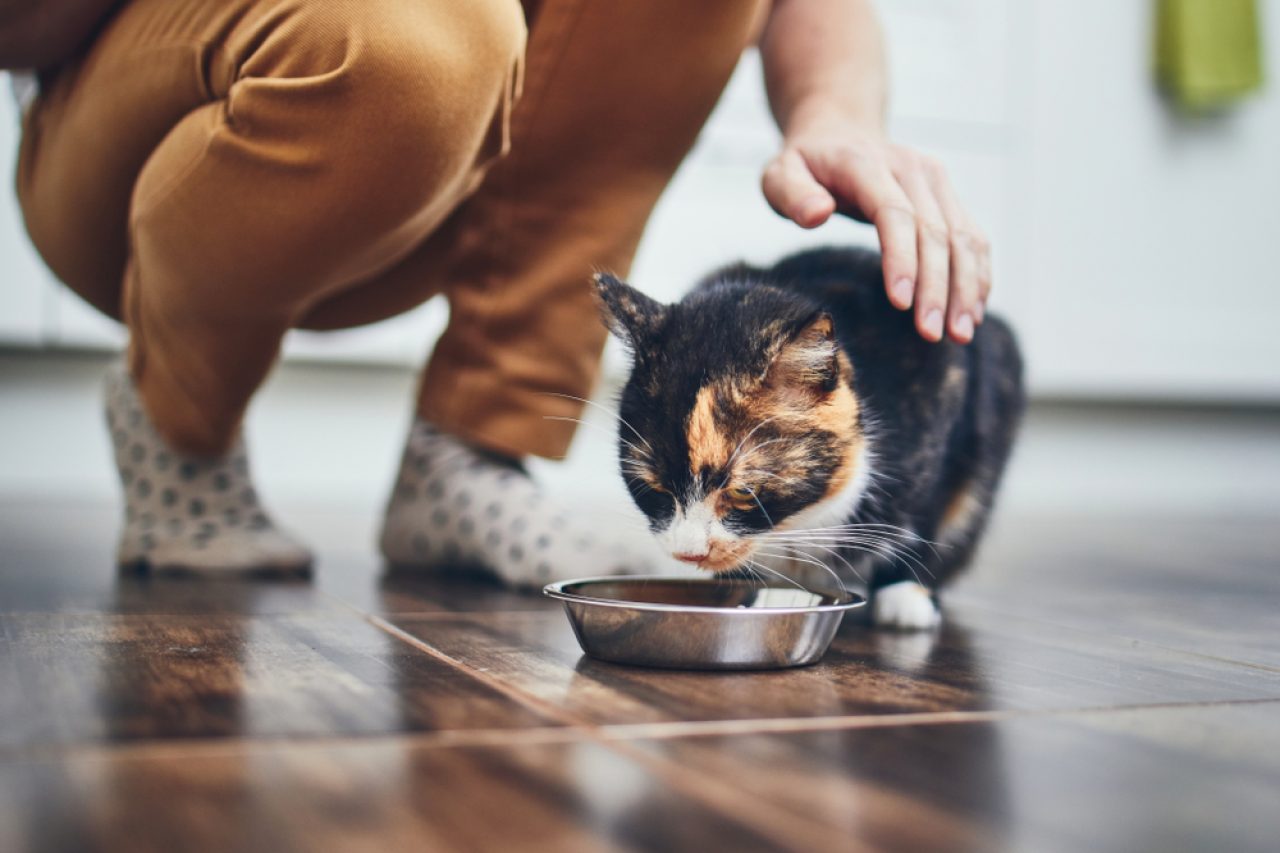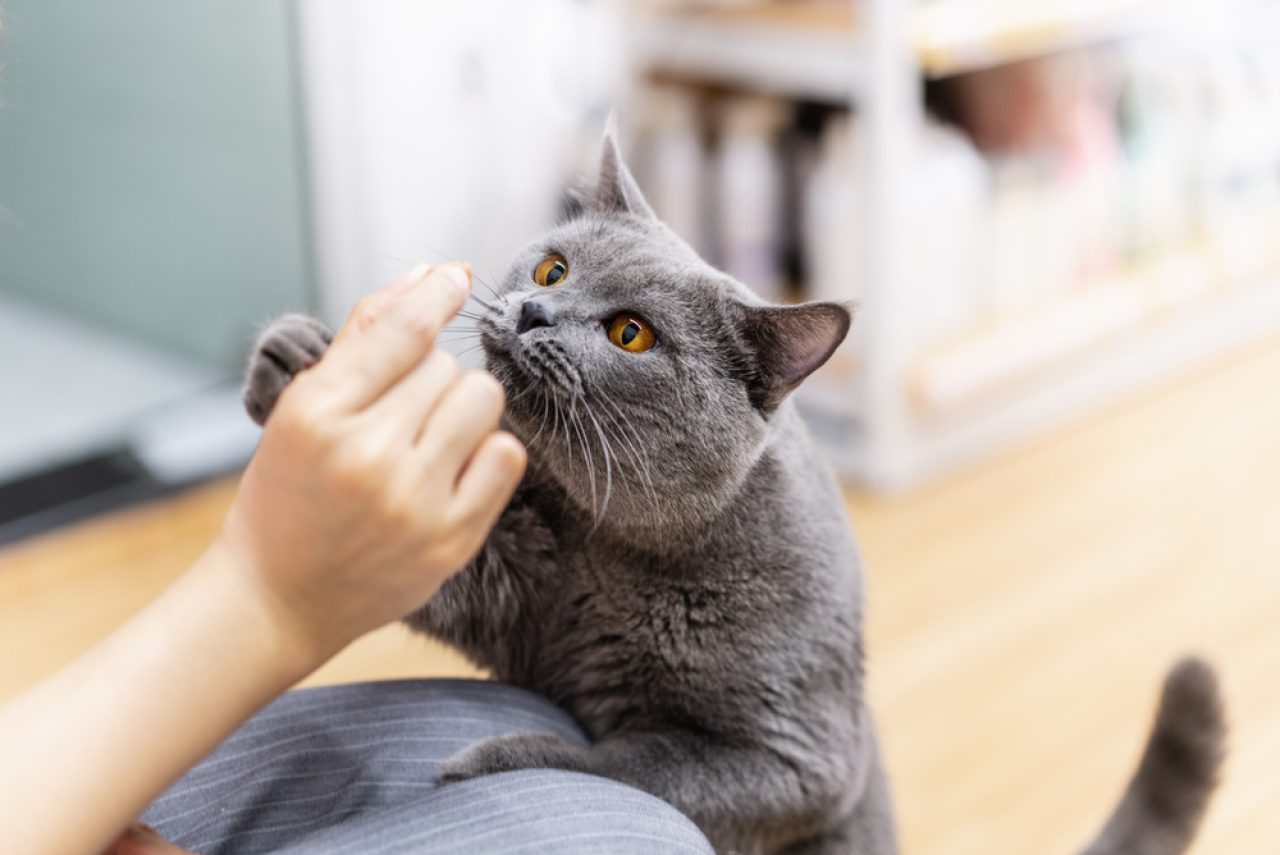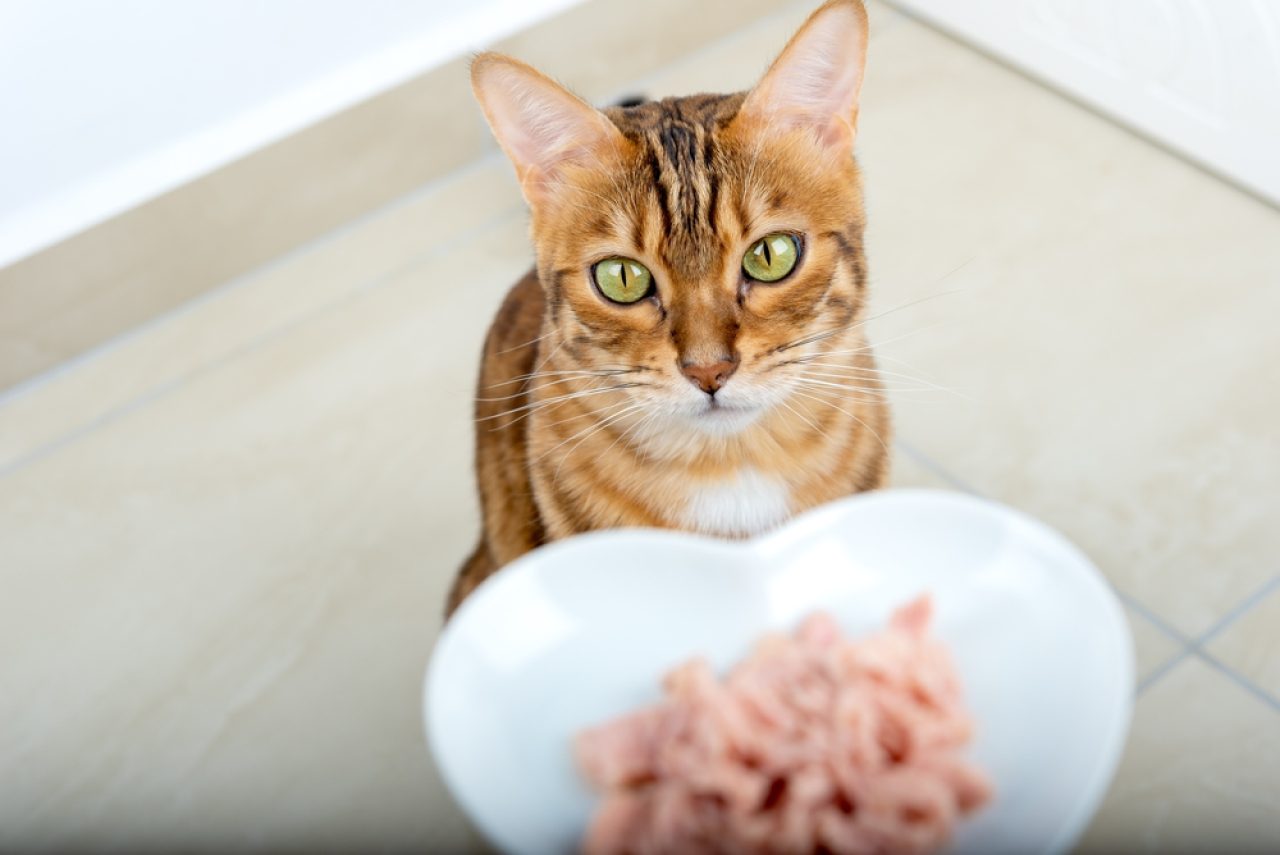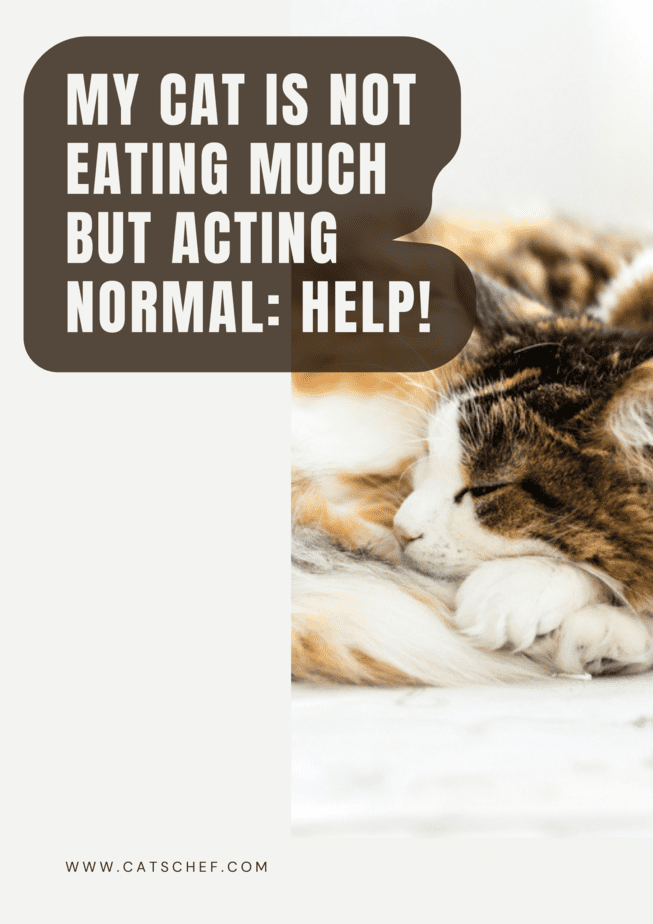📖 Table of Content:
As pet owners, we notice even the smallest changes in their behavior. A few weeks ago, I caught something strange so I called a vet. “I noticed that her appetite has changed. My cat is not eating much but acting normal. Should I be worried, or it’s nothing serious?”
I didn’t want to spend any more sleepless nights worrying about it. The vet explained it all to me and I could finally sleep peacefully again. That’s why I decided that I want to share everything I’ve learned with all those cat owners who have asked themselves the same question.
Here you’ll find possible reasons why your cat is not eating much, yet she’s still acting completely normal. But I also included tips and tricks on how to get her to eat enough food again. I hope you’ll find all this information helpful.
How to tell if a cat is not eating much
Noticing appetite problems is harder than we think it is. Especially if your kitty’s behavior stayed the same and there weren’t any other major changes. Sometimes people who have more than one cat can’t easily figure out which kitty ate and which didn’t.
Just because their bowls are empty doesn’t mean that all the cats ate equal amounts of it. Sometimes when they’re really hungry, they’ll eat their roommate’s food, too. And since they can’t talk to you, cats can’t really snitch on each other.
To help you figure out whether your fluffball has been eating less food than usual, I’ll tell you a few things you should keep an eye on.
– It seems like she’s lost a bit of weight.
– She’s sleeping more than usual.
– Your cat is not as happy as she was when you gave her treats before.
– She rejects food.
– You noticed that there are pieces of food around your house.
– The bowl stays full for a longer period of time than usual.
– Decreased poop in her litter box.
– She has trouble jumping.
8 reasons your cat is not eating much but acting normal
As a cat owner, you’ve probably already figured out that every question you ask concerning kitties will have many answers. But we love them so much, and I’m sure you don’t find it difficult to learn anything about them.
So, today you’re here to finally figure out why is your cat not eating much, but she’s still acting normal. After talking to one of the best vets in my region, he told me that there are 8 most common reasons this could happen. Here they are.
1) She’s getting old
We would all like our cat friends to stay young and active forever, wouldn’t we? But just as is the case with all other beings on Earth, they are susceptible to the process of aging, and with that comes a number of behavioral changes.
As they get older, their senses start to weaken, and yes, that includes two senses connected to their diet – taste, and smell. When their ability to taste and smell becomes dull, they don’t enjoy the food in the same way they did when they were younger.
One way you can counter this is by buying your cat food that is of greater quality, and in return, a stronger smell and taste. That will entice your cat to eat more, even in the latter stage of her life.
Always watch out for other signs of illness, and if you do find them – take your dear kitty friend to a vet.
2) You chose the wrong type of cat food
One of the more obvious reasons for your cat’s changed diet could simply be that she’s not a fan of the food being given to her. Let’s face it, we can all be picky regarding the food we want to eat. Well, cats take that to a whole other level!
They are infamously hard to please when it comes to their mealtimes. Felines are unique in so many ways, and their diet isn’t an exception. Some cats prefer dry food, some prefer wet food, and some like both.
Then you have those particularly finicky ones who don’t want to eat the food if it isn’t their favorite brand or flavor. If your cat suddenly stopped eating, try to remember whether you’ve recently changed the food you’re giving to her. If not, it’s unlikely this is the reason you’re looking for.
3) Your cat might be dealing with depression
Our little feline friends have so many similarities with us humans, and their mental state affecting their diet is one of those connections. In the same way that a human can start to lose interest in food because he or she is dealing with depression, so can cats.
Depression doesn’t come with just one symptom though, so, if your cat really is depressed, you will easily notice other signs like an increase in nap time, excessive scratching, a sudden jump in affection, and clinginess. Or your cat becoming more susceptible to fear, anxiety, and aggression.
It’s hard to know what causes this occurrence in cats, but the solution is pretty simple – spoil your little friend as much as you can. Always show them immeasurable love and affection and stick to a dependable and rational feeding schedule.
4) She’s stressed and anxious
I’ve already mentioned that changes in mental state can cause changes in your cat’s diet, but depression is far from the only mental condition that changes your cat’s behavior, including their eating habits.
Stress and anxiety can also cause your cat to show a lack of interest in food. The tricky thing about stress is that it can occur without showing other symptoms, unlike depression. Your cat might not eat as much but act normally.
But you should still look out for other signs of stress like lethargy, rigid body language, and hiding patterns. One of the best ways you could calm your cat down is to find the stressor, the cause of your cat’s tense mindset, and remove it.
It could be a loud noise, a stranger in a house, changes in their routine, etc. After that, your cat’s appetite should return and you can stop worrying. If that isn’t the case, definitely speak to your local veterinarian and see if he has any solutions for long-term stress.
5) She was recently vaccinated
We’re thankful for vaccinations, am I right? They save so many lives, including feline ones. But they are also notorious for their short-term side effects, and one of those side effects is loss of appetite.
If you recently vaccinated your cat against one of these diseases: rabies, FLV (Feline Leukemia Virus), and FVRCP diseases, don’t be alarmed if they eat less or stop eating completely. Changes in feeding patterns after taking a shot against these conditions are noted by a great number of veterinarians and cat owners.
After a vaccination, give your kitty time to recover and get back to her old self. Her appetite should come back soon. But if that is not the case 48 hours after the jab, consider contacting the vet that was responsible for injecting the vaccine and see if they have some advice.
6) Motion sickness
Have you ever traveled somewhere and suffered terrible motion sickness? I think most of us experienced that, at least when we were kids. It still happens to me quite often, and it makes me lose my appetite. But did you know that animals can also get motion sickness when they travel?
Well, yes. Even your cute little fluffball can get it. That’s one of the main reasons cats hate going anywhere. It makes them feel very sick and it shakes them up. At the end of the day, it’s just a combination of sickness and stress! Sounds awful, right?
Then it’s not that difficult to understand that they might not eat as much as usual for a day or two after their trip. But it shouldn’t last longer than that.
7) Hairballs
Every indoor cat or one that has long fur is likely to suffer from hairballs. Indoor cats grow and shed their fur constantly. That’s because they live inside where the temperature is practically always the same. This is why seasonal shedding is not a thing for them.
If you’ve caught yourself saying something like, “My cat is not eating much but acting normal,” the hairballs might answer your worries. Hair that accumulates in your cat’s stomach can make her feel full and she’ll refuse to eat.
But since she won’t feel hungry, she’ll be able to continue acting normally, and that might confuse you. There are medications that a vet can give your kitty to help her get rid of the hairballs that are stuck in her stomach.
8) She might just be bored
How would you feel if you had to eat the same two meals every single day? It doesn’t sound really nice, does it? Not even if you’re thinking about your favorite meals. You would still get bored of them after a week.
Well, our kitties are just the same. Her enthusiasm toward food won’t be present if you don’t change her meals from time to time. And that might make her refuse to eat, or just eat small pieces because she’s hungry.
But if your cat is bored with the food you serve her, she won’t bother eating it. Instead, she’ll wait for you to notice her hunger strike because she knows she’ll get something new and tasty afterward.
3 more serious issues
Unfortunately, sometimes when a cat is not eating but she’s still acting normal, she’s actually dealing with a more serious issue than boredom or stress. It’s comforting to know that these health issues are less common than all the ones we’ve already mentioned. But, I still want you to be aware of them.
The key to full and quick recovery is to react on time. So if you think that your kitty might be dealing with one of these 3 serious issues, you shouldn’t wait long before contacting a vet. They will give you the best advice and decision on how to treat the problem successfully.
1) Different gastrointestinal problems
Unfortunately, gastrointestinal problems are a common reason your cat might not be eating much but acting normally. Those problems can cause much pain and discomfort while digesting food, and kitties sometimes just refuse to eat. That’s because hunger hurts much less than this.
Some of the most common gastrointestinal problems are colitis, ulcers, gastrointestinal obstruction, parasites, gastritis, cancer, or inflammatory bowel disease. You’ll recognize it by a loss of appetite and other symptoms like diarrhea, lethargy, weakness, or excessive sleeping.
2) Dental issues
If you mention a loss of appetite to any vet, they will definitely take dental issues into consideration. Cats are animals that often suffer from them because of their sharp teeth. If they’re really having dental issues, it will make eating so painful that they’d rather skip their meals.
There are many different dental problems that can be developed. However, one of the most common ones is gingivitis. This disease is easily treated and it doesn’t last for a long time. You can recognize it by inflamed gums.
Another issue that is common, but more serious is periodontitis. It happens when you ignore your cat’s gingivitis and the inflammation worsens. If it happens, not only gums will be damaged, but also your cat’s teeth, ligaments, and tissues.
3) She might be having a kidney disease
Kidneys are one of the most important parts of our bodies, and they are very important for our kitties, too. When they fail to remove waste from the blood, regulate electrolytes, or produce urine, they cause many problems in our bodies.
It’s scary that kidney diseases can hide very well for months, and sometimes even years. And all of a sudden chronic failure appears. That’s why most people refer to them as silent killers.
One of the signs of kidney disease is your cat’s loss of appetite. Especially if you’re having an older cat. On top of that, it’s also important to mention more frequent urination and increased thirst.
If you notice these symptoms, it’s best you contact a vet right away. If you react on time, recovery is very possible. However, the prognosis is not that good if the kidneys are severely damaged. That’s why it’s important to react quickly!
The food you shouldn’t give to your cat
Just like there are foods that aren’t healthy for us, there are also a few meals we shouldn’t serve to our kitties. Maybe these meals are the reason you’ve been saying that your cat is not eating much, but acting normal. I did my research and I’m here to tell you everything I’ve found out. Let’s start.
When it comes to fruits and vegetables, we can give them as a treat once or twice a week. But we must remember that cats are carnivores, and their digestive systems aren’t designed to process lots of plant-based food. Even if you’re a vegan, don’t try that kind of diet on your kitty!
Most of our human foods are also not healthy for kitties. We don’t have the same digestive tracts and different kinds of food provide needed nutrients to both of us.
Raw meat such as chicken or uncooked eggs might sound like a perfect meal for your little carnivore. However, raw food can be full of bacteria and parasites, so you should avoid it as much as possible.
Grains and cereals are not necessary for cats because their diet doesn’t require carbohydrates. And you should always keep your cat’s intake of carbs below 3%. Cats get enough energy from fat and proteins and they don’t need carbs.
When it comes to milk and dairy products, they are bad because of lactose and casein. That’s because they can cause allergic reactions. The only exception is yogurt, even though you should give it only occasionally.
And finally, products containing animal derivatives. These are usually just leftovers from human food production. As we’ve already learned, human food and cats should not be friends at all. Especially because these derivatives usually contain cheap fillers that are harmful to both us and our cats.
What your cat should eat instead
Now that we’ve learned which meals should not be served to our kitties, it’s time to take a look at foods that are actually healthy for them.
Let’s talk about dry food first. Cats adore it because of its perfect texture and smell! But we’re also big fans of dry cat food because it’s one of the cheapest options. However, since it’s so cheap, it usually needs to be accompanied by wet food. That’s because dry food is not nutritionally sufficient on its own.
Then I want to talk to you about jelly and gravy products, or as we call them “wet food.” That’s the best option! They are the owner’s favorites because they help keep their cats hydrated.
But that’s not the only reason why. Wet food also supports digestion and you’ll never have to worry about the changes in your cat’s poop.
My favorite option has always been to mix wet and dry food, and ever since I started doing that, I never had to worry about my cat’s loss of appetite again.
If you’re a fan of making homemade meals for your fluffball, I suggest you contact your vet so they can give you a list of needed ingredients and help you figure out how to find the best nutritionally adequate recipes.
What to do to make your kitty eat again
Now that we know all the possible reasons your kitty has been refusing to eat much, I need to tell you how to get her to eat again. I’m aware that watching her eat less and less is very stressful. Trust me, I’ve been in your shoes. But that’s exactly why I now know how to help you.
I tried many tips and tricks I saw on the Internet or my friends told me about, but these 4 pieces of advice are the only ones that worked well for me and my fluffball. Sometimes you’ll have to follow all of them, but there are cases when only one little change can do wonders.
But I promise you’ll never catch yourself saying, “My cat is not eating much but acting normal” again. Let’s check them out together.
1) Change the food
If your kitty is refusing to eat the food you give her, it might be because she wants to eat something new for a change. I’ve already mentioned that just like we would get bored by eating the same sandwich every day, our kitties also get bored by that.
The other reason you might need to change the food is if you’ve recently given your kitty something new but she suddenly stopped eating. Then it’s best you search for another option, and give her the old food while you’re looking to buy something different.
2) Try appetite stimulants
If your kitty refuses to eat for many days, you should contact your vet and ask about appetite stimulants. Vets usually prescribe them so your cat’s appetite is back as soon as possible. They can be put directly on the skin and are a proven medicine that helps cats eat again.
3) Heat up the food
Cats are very picky. But imagine getting served a cold bowl of soup. Ugh, disgusting, right? Well, your kitty is also not a big fan of cold meat, so whenever you’re able to, please try to heat up the food before giving it to your fluffball.
Sometimes they hate cold food so much that they completely refuse to eat it or only eat the pieces that are at least a bit warm. It’s a small task for you, but it means a lot to your kitty.
4) Change the time you feed her and the location of her bowl
And finally, sometimes a little bit of change is exactly what we need to get back on our feet. As cats easily get bored, maybe you can try changing the time you feed her. If you noticed that she doesn’t seem hungry at 8 AM, try feeding her at 9 AM instead.
You can also try moving her food bowl. It’s important to do it every now and then, especially when the colder winter days come. She will definitely be thankful if you move her food bowl somewhere warm.
Final thoughts
As you could see, there are many reasons why you might say, “My cat is not eating much, but acting normal.” Luckily, most of them are not connected to any serious issues. But if you noticed any additional symptoms that point out one of the major issues, you should contact your vet right away.
Keep in mind that if you react on time, it’s much more likely that a vet will be able to treat her. Don’t stress if you don’t notice any of those additional symptoms! Instead of wasting time on that, go on and cuddle with your little fluffball. Colder days are coming, keep your kitty and her warm fur close.
Read more: Cat Not Eating Food But Eats Treats: Is She Okay?
